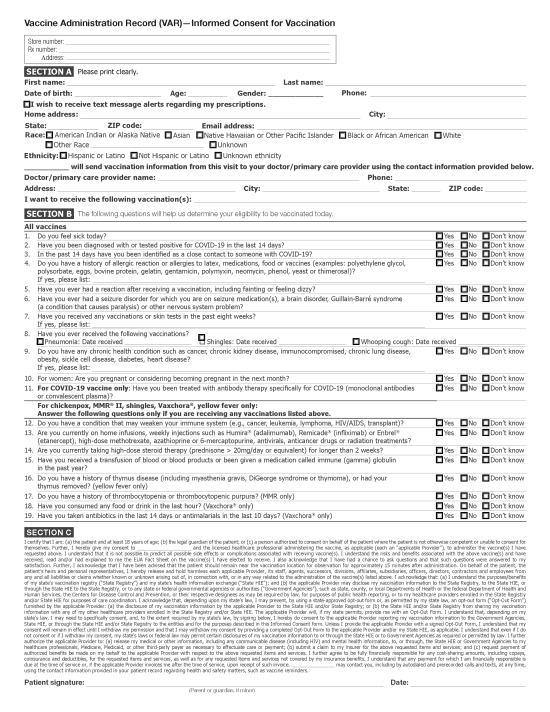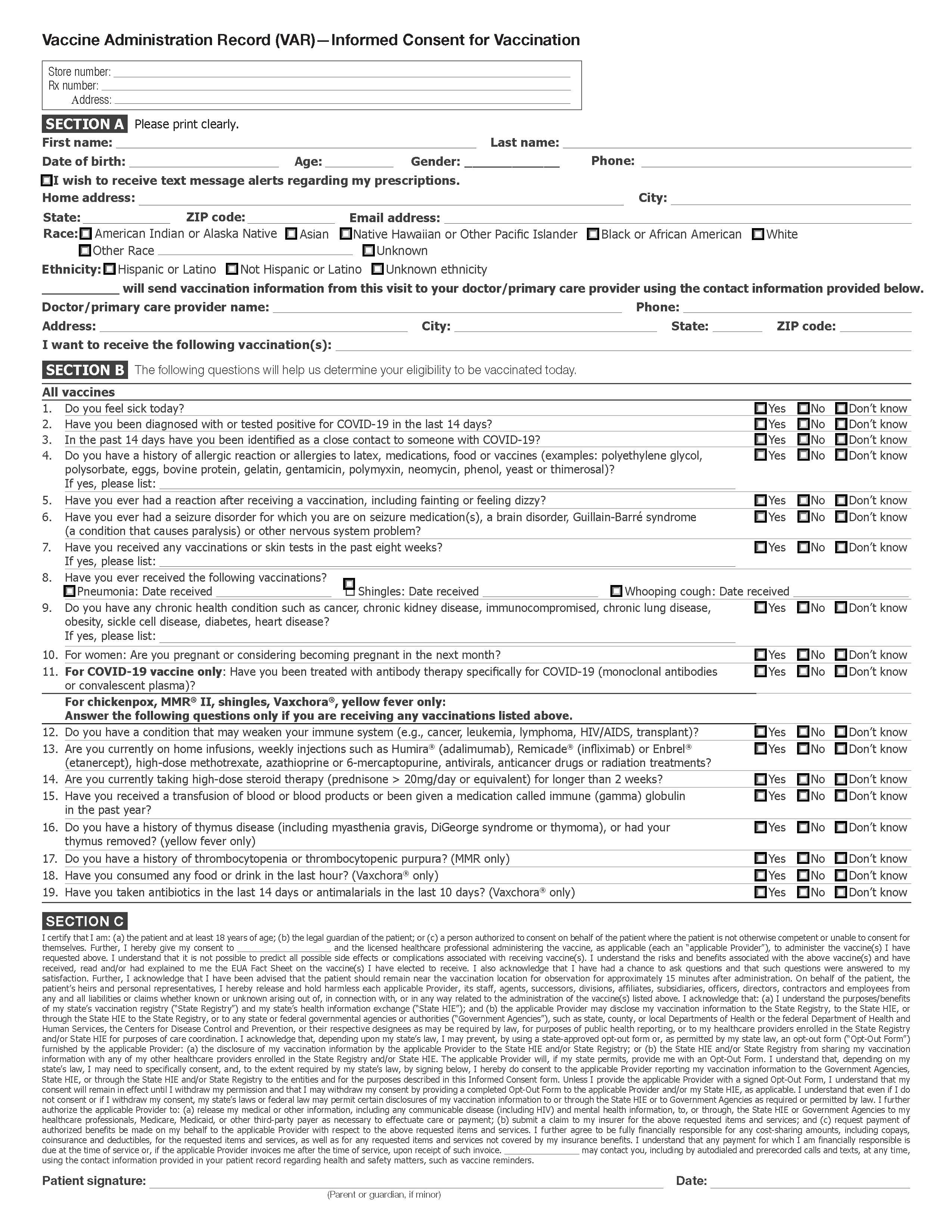Obtaining Consent
To obtain lawful, valid consent from the patient to receive a vaccine, the following must apply[1]:
- Full Consent. Individuals must be made aware of and consent to each vaccine they are to receive.
- Informed. The patient must be informed about the risks of vaccination and what the procedure entails.
- Information. The patient must be given enough information and advice from vaccine providers to make an informed choice.
- Duress Free. The individual must give consent without the influence of family or medical professionals.
Vaccine Information Statement (VIS)
The National Vaccine Childhood Injury Act (NCVIA) is a federal law requiring every patient to receive a Vaccine Information Statement (VIS) before receiving certain vaccines.[2] A VIS must be given before each dose in both private and public healthcare settings, regardless of the patient’s age.
Federal law requires that a VIS for the following vaccines:[3]:
- MMR
- MNRV
- Haemophilus influenzae type b (Hib)
- Diptheria
- Hepatitis A and B
- Human Papillomavirus (HPV)
- Influenza (both inactivated and live)
- Pertussis-containing vaccines
- Meningococcal
- Pneumococcal Conjugate (PCV)
- Varicella (chickenpox)
- Rotavirus
- Polio
- Tetanus
The Center for Disease Control (CDC) website contains up-to-date English-language VIS information for providers, while its partner Immunize.org provides translated versions.

